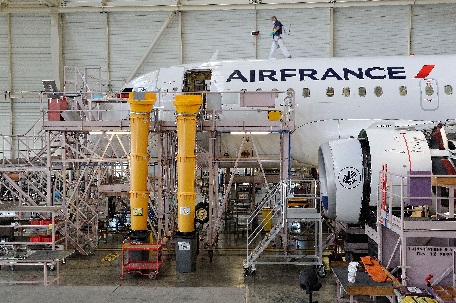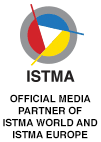All systems go for Air France bench tests
19.02.2021
Aviation expert Air France has expanded its vibration analysis capabilities, which are vital to safety checks carried out on aircraft engines, with an integrated repetitive test system - Tescia®.
 Photo courtesy of Air France
Photo courtesy of Air France
Aircraft vibration involves checking the balance is correct at two points on the engine; this is monitored by permanently mounted accelerometers that continuously record the vibratory displacement. This displacement must remain within a very precise tolerance level, as the slightest unbalance brings testing to a standstill, which is both costly and time consuming.
To ensure accurate assessments, without disturbing engine operation, Air France approached test and measurement specialist HBK for a solution. After analyzing Air France’s requirements, HBK’s engineering team recommended integrating its Tescia system – a complete toolkit comprised of LAN‐XI data acquisition hardware and a dedicated PC - into Air France’s Zephyr test bench.
Ivan Rouesné, Zephyr’s Dubanc Manager explains: “The vibration measurement may seem like a minor detail compared to everything we do on a GE90 -115 type engine. In a performance test, large forces are developed, and the slightest sign of unbalance is to be avoided at all costs.”
Ivan continues: “On the GE90-115 engines powering the Boeing 777, measurements made on two couplings, which rotate at different speeds, are constantly monitored and must not exceed a set level of displacement. We were able to interpret their vibration behaviour easily on the Tescia system, which immediately gave us simple information from complex processes such as the use of tracking filters to obtain clear and reliable signals.”
Read the full details on: https://www.bksv.com/en/Customers/Aerospace/air-france
More information about Tescia is available on HBK’s website: https://www.bksv.com/en/products/daq-data-acquisition/Tescia


































